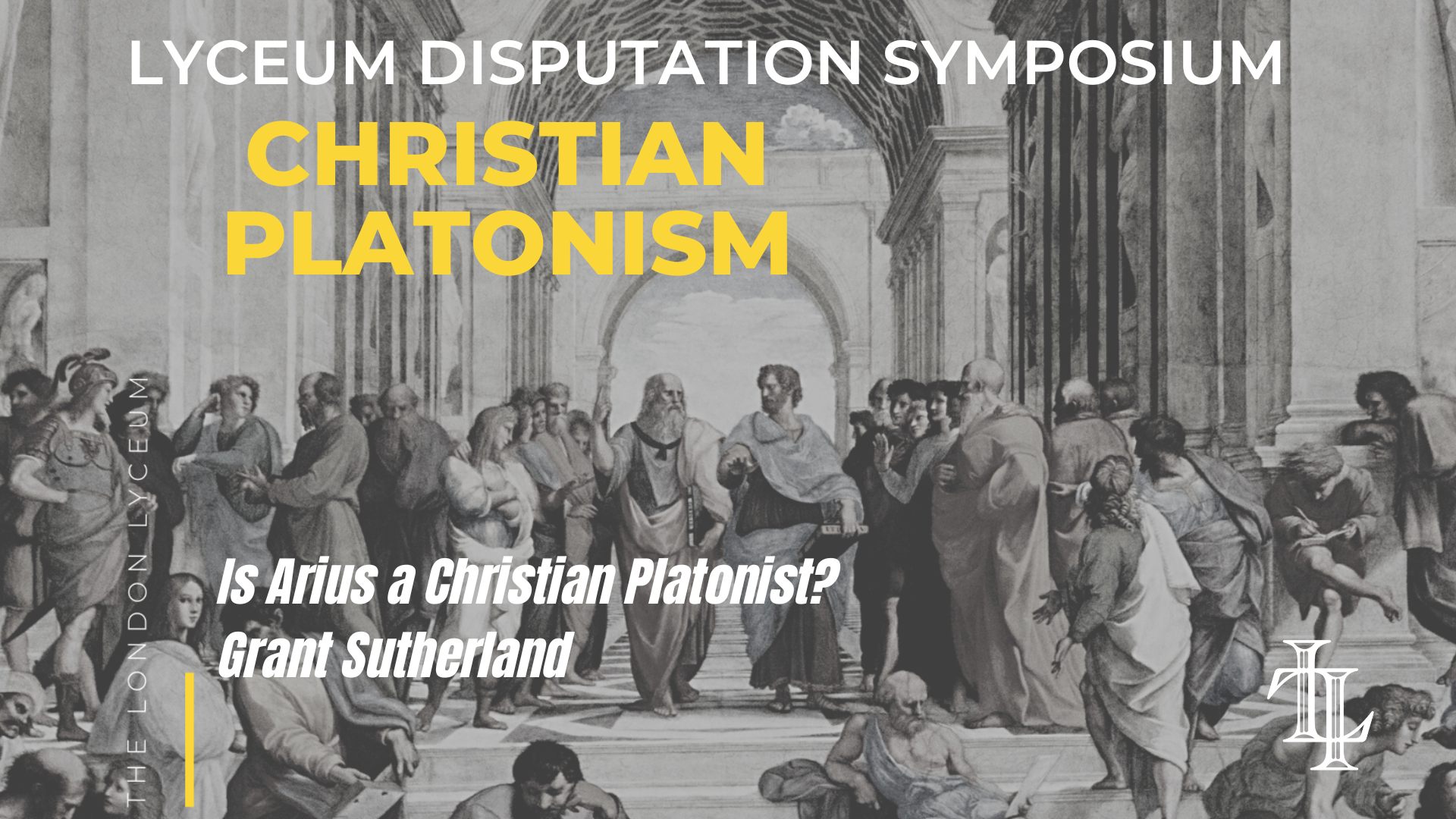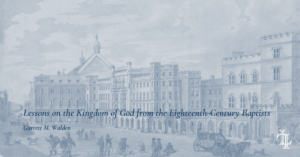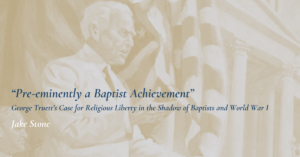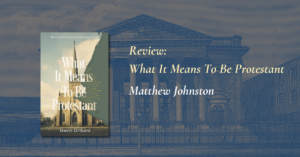Editor’s Note: This is part 4 in our Lyceum Disputation series considering the nature and potential necessity of contemporary “Christian Platonism.” Stay tuned for further installments. As with all our work, the London Lyceum publishes a range of viewpoints to encourage thinking.
Christian Platonism has become a near household term among pastors and seminarians. It is a contentious term for obvious reasons. Various theologians advocate not only the usefulness of Christian Platonism, but that the metaphysical system it provides is necessary for faithfully interpreting Scripture, thinking about God, grounding ethics, and retrieving the historic creeds and confessions of the Church. For some, Greco-Roman thought is itself yeast to pure unadulterated theology. It is customary, at this point, to reference a phrase from a certain foil—an early Latin Christian. In order to endear myself to the philosophiphobes, I will avoid invoking and exercising Tertullian’s spectre. I am not concerned here with the relationship between Scripture and philosophy, nor will I here offer a reply to the sophistical opinion that the history of non-Christian philosophy is the history of unbelief. It is my concern, however, that the definition of Christian Platonism in constructive theology lacks a clear and cogent definition, with the result that its use in the present obfuscates the past. On the other hand, I am concerned that those who are primarily undertaking historical research bolster this definitional confusion by failing to carefully limit and define what is meant by it. I would suggest that the terminological confusion over Christian Platonism is indicative of the failure to grasp the different methodological assumptions at work among theologians and historians, even some assumptions antithetical to Platonism itself. I am deeply indebted to the Christian Platonist program and have been profoundly shaped by it. Thus, I hope what follows is received in a spirit of scholarly friendship. In order for a term to be of use by theorists and scholars alike, greater definitional clarity is required.
What is Christian Platonism (hereafter CP)? It may seem obvious at first, but the more we think about it, the more difficult an answer becomes, as with many other such terms. For instance, many have tried and failed to define “reformed,” “puritanism,” and “evangelicalism,” and CP is just as difficult. Even those definitions that have gained widespread acceptance are nonetheless contested. CP is particularly difficult to define because, unlike these concepts, we have a conjunction of “Christian” and “Platonism,” that are also individually contested. In the introduction to Christian Platonism: A History, a recently published compilation of essays with contributions from prestigious scholars, no clear definition is offered.[1] John Kenney, one of the book’s editors, just did an interview in which he stated, “I think it is a good idea not to get too hung up on the term itself. It just points out how Platonism has been important for the development of Christian thought.”[2] The aversion to defining CP, as we see here, is not an insignificant issue. The basic definition he provides fails to tell us what “Christian” and “Platonism” refer to specifically, let alone their conjunction. This is further complicated by the desire among ressourcement theologians to “retrieve” CP where it is intended to perform a far more constructive function than a neutral description of historical influences and interactions. Modern theologians refer to CP as if it is a stable concept—and that is because, in their project, it is. As such, referring to CP as an authority can be problematic when we realize that the historical confluence of these concepts is unstable. This is not to say that conceptual stability cannot be achieved, however it may require of us some compromises and or methodological transparency.
Boersma’s Christian Platonism
In order to get at the definitional problems I wish to highlight, let us first take a look at a recent statement by Hans Boersma, not merely a significant proponent of Christian Platonism but also a well recognized scholar of Gregory of Nyssa. He writes, “Our naming should be in line with God’s own, eternal naming, as expressed in the generation of his eternal Word. Christian Platonism, therefore, maintains that we assign names because the objects are what we name them. Their identity is grounded in the Father-Son relationship.”[3] He then goes on to briefly articulate how Christology must be grounded in a participatory relationship of all mankind in the man Jesus Christ.
By invoking CP, Boersma is not merely making a metaphysical claim about the existence of universals. Rather, it seems to me that he understands by CP a highly developed, creedal and orthodox, doctrine of God and Christ. The C in CP seems to be doing the theological work of locating that participation in the Word (or Logos) of God. Critically, it is not any theology of the Word that will suffice for Boersma, not that of Justin Martyr, nor of Marcellus, nor even of Athanasius taken in toto. Athanasius ties the meaning of the Word to Wisdom and Power, all individuating attributes of the Son’s existence as Creator and Lord, which the Son is in respect to the Father. But I suspect Boersma would agree with Augustine, over Athanasius, that the Son is Word in relation to the Father, but is only Wisdom and Power in respect to the divine essence rather than the Father (De Trinitate XII.2). Moreover, the eternal generation of the Son from the being of the Father—which is to say, that the Father and Son are homoousios—is not incidental to Boersma’s account of the participatory nature of all reality in the Word. He also assumes in his understanding of the C in CP a robust doctrine of the Incarnation, a distinction between the natures, and the assumption of not merely a human body. My point is that Boersma’s understanding of Christian Platonism assumes a particular theology and philosophy that has continuity and discontinuity with other early Christian thinkers. I have no issue with Boersma’s thick definition of Christian Platonism. But a problem arises when one transcribes a theologically and philosophically rich understanding of Christian Platonism, like Boersma’s, into a construct for interpreting past theologians, creeds, and councils. It need not be explicit, but the swivel from the present to the past—from truth claims to truthful descriptions of the past—without careful qualifications, begets anarchronisms and confusion. This is not to say that Boersma has done this. With this in mind, let us now turn to the definitional problems I wish to highlight.
Ur-Christian Platonism
Contemporary Christian Platonists often define “Platonism” with reference to Lloyd Gerson’s concept of “Ur-Platonism.” Unlike scholars who underscore the fundamental differences between Plato and Aristotle, and those who interpreted Plato and Aristotle throughout Antiquity and Late Antiquity, Gerson argues that a unified and harmonious tradition can be seen in spite of their differences. A critical element of Gerson’s hypothetical reconstruction of this underlying harmony—what he calls “Ur-Platonism” (UP)—is to distinguish between Plato’s philosophy and Platonism.[4] If Platonism is merely an extension of what was contained in Plato’s dialogues, then Aristotle’s philosophy will depart from Platonism in many ways. One would, thus, not be able to call him a Platonist. However, if Plato’s own philosophy, worked out in the dialogues, is the positive construction from a set of shared assumptions with Aristotle and their followers and commentators, then both Plato and Aristotle can rightfully be described as “Platonist.” So, what is this common set of fundamental doctrines? According to Gerson, those who espouse Ur-Platonism maintain anti-materialism, anti-mechanism, anti-skepticism, anti-relativism, and anti-nominalism. With such a broad and negatively construed definition, Gerson points out that this allows for vast differences in positive constructions among Platonists. For example, what is the nature of and location of universals and their relation to particulars, or what is a soul and how does it relate to the body? Is knowledge innate, a posteriori, or a mixture of both? There are different answers and solutions to these problems within big-tent Platonism. Yet all, according to Gerson, maintain as a starting assumption these five anti-theses contra naturalism.
If we agree with Gerson’s approach to defining Platonism, then when seeking a definition of Christian Platonism, we go wrong to identify it with a specific thinker or set of doctrines where there are actual or hypothetical counterexamples. This would be to make the same mistake as those who say Platonism is Plato’s philosophy. No more can Christian Platonism be Aquinas’ philosophy than Platonism be Plato’s philosophy—unless we think Gerson’s definition is wrong.
If we wish to maintain that CP designates a wide range of theological and philosophical constructions within a certain underlying harmony, we must be willing to distinguish, we might say, the concrete from the universal. The more we load the definition of Christian Platonism with positive theological and or philosophical content, the more counterexamples come to mind. This also requires us to acknowledge that, in spite of vast agreement, there are actual differences between Christian thinkers and their philosophies. The differences between Origen and Augustine, and Augustine and Aquinas are not reducible to differences in cosmetics, even if their agreement is in substance greater than their differences.
Whack-A-Mole, an Analytic Philosopher, or a Heretic
It seems to me that there are two reasons why ressourcement theologians wish to narrowly define Christian Platonism. First, a wide definition, like Gerson’s Ur-Platonism, will inevitably include modern theologians and analytic philosophers who differ on doctrines unanimously maintained by early Christians after the third-century, such as divine simplicity, immutability, incorporeality, and impassibility. The negatively construed definition of Platonism above does not say enough to be of significant use for ressourcement theologians if one can affirm Ur-Platonism and yet accept divine metaphysical composition or (im)material corporeality. This also raises the question of whether classical theism is an essential concomitant of Ur-Platonism. I will leave this to others to debate. Merely affirming big-tent Platonism does not seem to be sufficient, and so there must be some positive philosophical content if CP is to be of dogmatic use beyond retrieving pre-Modern exegesis, epistemology, and ethics.
Second, a wide definition of CP will include theologians who espouse unorthodox or sub-orthodox positions on the doctrine of the Trinity, Christology, and anthropology, among other doctrines. This is problematic if CP is fundamental to one’s constructive project of retrieval. What is the definition of “Christian” (C) in CP? Good constructive theology, setting forth what is true and not merely historically accurate, cannot deal in ambiguity. This is also a problem for Christian philosophers who wish to be included under the CP banner. Keep in mind here Boersma’s thick understanding of both concepts in “Christian Platonism.” Must C in CP include the eternal generation of the Son, and must the generation be specifically from the being of the Father? Must one believe the Son is eternal, or really distinct from the Father, to be reckoned a Christian Platonist? What about the equality of the Father, Son, and Holy Spirit?
The terminus of this line of questioning is none other than the Heresiarch himself. Is Arius of Alexandria (256-336) a Christian Platonist? We are certain from his extant writings and also the philosophical and theological context of the fourth-century that he dwelt in big-tent Platonism (UP) and also espoused divine simplicity, impassibility, and incorporeality, for example. In this regard, he has far more in common with fourth-century pro-Nicenes than many modern theologians and philosophers. Thus, we cannot deny Arius a seat at the CP table because of his Platonism. To say that Arius’ error was fundamentally his Platonism is to employ, again, an outdated heresiological trope that identifies theological error with something philosophical, as opposed to exegetical or theological. Arius was not in error because he utilised Platonic ideas, no more than pro-Nicenes were orthodox for not using Platonic ideas. Simply dismissing Arius by asserting that Christian Platonists are trinitarian is insufficient. Arius affirms, after all, a form of trinitarianism.
To import the C in CP with a set of doctrines that would a priori exclude unorthodox thinkers, like Arius, will not resolve the problem. Aside from begging the question, to do so is to spawn two further issues. First, such a list of doctrines may exclude other ante- and post-Nicene thinkers who one would wish to reckon as Christian Platonists. Consider Origen of Alexandria or even Eusebius of Caesarea. There are also the many thinkers throughout the second- and third-century who were unclear on many finer points of the doctrine of the Trinity and Christology, and at worst, were too clear in articulating things incongruent with later creeds and ecclesiastical statements. If one is to say that the baseline affirmation of C in CP is that the Son is uncreated, what are we to do with Dionysius of Alexandria (d. 264) who refers to the Son as a “creature” (κτίσμα) while also saying that the Son is eternal? We know from Athanasius’ De Sententia Dionysii that some unnamed “Arians” appealed to Dionysius as precedent for their views. Athanasius rejected their interpretation of Dionysius and also laid claim to him for the pro-Nicene cause. There is not scholarly consensus on how we are to interpret Dionysius on this point.[5]
Second, a doctrinal standard devised to exclude Arius (such as that the Son is not a creature) only kicks the problem further a field. Figures like Apollinaris of Laodicea (c.310-c.390), Eutyches (c. 380-c. 456), and Nestorius (c. 386-c. 450) do not usually make the short list of notable “Christian Platonists.” By early- to mid-fourth-century standards, they said the right things. Mark Smith has compellingly shown that Nestorius and Eutyches argued for the validity of their position by appealing to the Nicene creed.[6] They were, not merely non-Nicene, but explicitly pro-Nicene—even if Cyril maintained otherwise. To import later fourth- and fifth-century christological distinctions and clarifications into the definition of “Christian” in CP will also exclude prominent pro-Nicene fourth-century theologians. We have only considered theological and christological problems, without mentioning problematic conceptions of the created world and embodiment.[7]
One might reply to these problems by saying that to the extent that one conforms to a list of specific philosophical and or theological doctrines, then one is a Christian Platonist. This move seems to usurp the concept of its analytic use. What would it mean to say that Origen is a quasi-Christian Platonist because his theology falls short in x, y, and z areas? In which case, Arius makes the cut with the sloganeering skin of his teeth.
“Slippery” and “porous” are not adjectives systematicians appreciate. But that is what history offers us—thinkers who break our conceptual frameworks. These terminological problems force us to think about how we conceptualise and compartmentalise the past as a resource for constructive Christian theology and philosophy. At the foundation of this definitional aporia is the failure to recognise or clarify the distinction between theology and the history of theology, and one’s constructive Christian Platonism and the historical description of “Christian Platonism.” The problem with the line of questioning above is that we are simultaneously in search of a conceptual construct for identifying a common ground between divergent thinkers while at the same time saying that another more constrained set of doctrines is not only essential to that construct but is also true.
The definition of Christian Platonism will inevitably be ad hoc if we are not clear on what its conceptual purpose is and what domain we are referring to. By asking these questions and posing these problems, one is forced to be clear about why one is using the term “Christian Platonism” to begin with. Constructive thinkers must rightly and explicitly calibrate the polemical referent of the term while acknowledging disjunction with the past. Yet the past seems to be the authority that grounds the CP project to begin with. Is CP’s enemy philosophical naturalism and the historical-critical method, or is the opponent of CP those who reject or modify classical theism and engage in revisionist readings of the creeds? Or is the enemy of CP those who reject specific trinitarian positions, like eternal generation? The latter seems to miss the mark. Clarity about the theological and philosophical position against which one utilizes CP will limit its analytic use to those specific domains.
A Conceptual Breakdown
As far as I’m aware, the hesitancy to ask, let alone answer, whether or not Arius is a Christian Platonist may indicate two contradictory commitments held by scholars of Christian Platonism. On the one hand, there seems to be a commitment to methodological neutralism—alleged, that is. Methodological neutralism here, ironically, may be a form of methodological naturalism. On the other hand, it seems that there is a commitment to maintaining that Christian Platonism is not a philosophically neutral construct. It seems to me that most scholars who interact with the term think that “CP” is not merely of historical but normative significance. This would indicate that there are unacknowledged theological assumptions contained within the C of CP for the historian as well. It should be obvious that there is a tension between the commitment to methodological neutralism and the very construct of Christian Platonism itself as to its common use.
One way to foreground the tension is by asking, again, is Arius a Christian Platonist? To answer this, we must lay our methodological, theological, and philosophical assumptions on the table. The same people who would take issue with calling Emperor Julian (331 – 363) “Julian the Apostate” should have little to no qualms with calling Arius a Christian Platonist. The opposite is true for those who must reckon with the disciplines alleged neutralism. Although I may be mistaken, I doubt there exists a monograph or article called “Arius’ Christian Platonism.” To forward Arius as a Christian Platonist seems to cut against the interests and theological commitments of both sympathetic historians and theologians. We are pressing here upon the tension between methodological agnosticism and normative truth claims in the Christian Platonist camp. Theologian-historians like Boersma are not merely interested in describing the past but also prescribing what Christians ought to confess. Whereas scholars like John Kenney, even if they are sympathetic or in fundamental agreement with theologians like Boersma (I have no idea whether he is or not), must speak of Christian Platonism within the constraints of methodological neutralism, at best, and methodological naturalism, at worst. For a scholar to say this person is reckoned a Christian and this person is not, is to make an evaluative judgment with reference to a specific understanding of the development of doctrine and truth, among other considerations. Yet, there must be some operative definition of Christian Platonism for this Arian lacuna to persist. Christian theologians cannot [the truth]. This is not to say that historians can. But Early Christian and Medieval scholars are not in the business of evaluating who is and who is not in fact a Christian. Nominalism is the norm. This is part and parcel of the deconstruction of the concepts of “heterodoxy” and “orthodoxy” within early Christian studies. Thus, when attempting to identify who is a Christian Platonist and who is not and what is Christian Platonism, the historian, it seems to me, avoids defining “Christian” with any degree of precision.
Do these terminological quandaries demand us to abandon the term? At present, to me, the term “Christian Platonism” is like a brittle seesaw plank bearing two hefty children on either side of the fulcrum—one named “Theologian-Philosopher” and the other named “neutral Historian.” Christian Platonism seems unable to uphold this conceptual duality without significant reinforcements and clarifications.
[1] Alexander J.B. Hampton and John Peter Kenney (Eds.), Christian Platonism: A History (Cambridge: Cambridge University Press, 2020).
[2] https://credomag.com/2022/05/christian-platonism-a-history/
[3] https://www.firstthings.com/article/2022/08/saving-mankind
[4] Lloyd P. Gerson, From Plato to Platonism (Ithaca: Cornell University Press.Gerson, 2013), 9.
[5] See Lewis Ayres, Nicaea and its Legacy: an approach to Fourth-Century Trinitarian Theology (Oxford: Oxford University Press, 2010), 48.
[6] Mark S. Smith, The Idea of Nicaea in the Early Church Councils, AD 431-451 (Oxford: Oxford University Press, 2018).
[7] For example, see Boersma’s conclusions on Gregory’s understanding of embodiment: Embodiment and Virtue in Gregory of Nyssa: An Anagogical Approach (Oxford: Oxford University Press, 2015).
Author
-

Grant Sutherland is a Ph.D. candidate in historical theology at the Institute for Religion and Critical Inquiry, Australian Catholic University. He is currently researching divine authority in Late Antiquity and fourth-century trinitarian controversies. He has an MA in Religious Studies from McMaster University where he worked on the trinitarian theology of Gregory of Nazianzus. He and his wife Abi have three children and live in Melbourne, Australia, where they attend Christ Covenant Church.
View all postsRecent Posts



